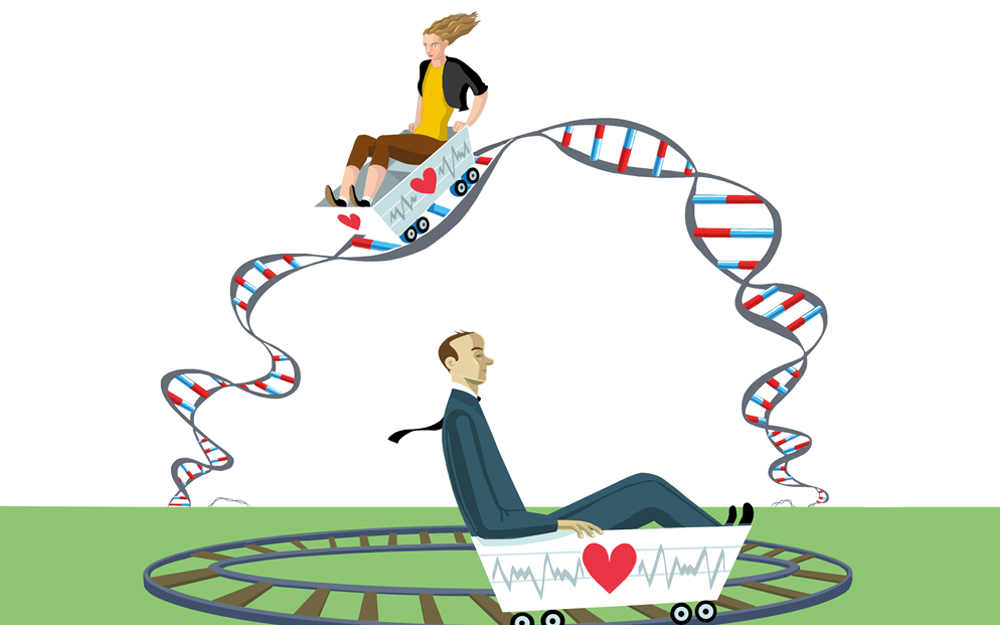Gender and High Blood Pressure
Date
June 1, 2022
Credits

Date
June 1, 2022
Credits
Medical providers featured in this article
In Brief
{{cta-block}}
Women’s and men’s risk factors for high blood pressure may need different medical approaches. Research at Cedars-Sinai recently revealed that the potential for high blood pressure—also known as hypertension—is more driven by genetics in women.
"A woman with low genetic risk is less likely to develop hypertension than a man with low genetic risk," says Dr. Susan Cheng, director of the Institute for Research on Healthy Aging at the Smidt Heart Institute and the Erika J. Glazer Chair in Women’s Cardiovascular Health and Population Science. "Conversely, a woman with high genetic risk is more likely to develop hypertension than a man with high genetic risk."
For the study, Dr. Cheng and her team analyzed five decades of blood pressure and genotype data from more than 200,000 people. The results confirmed that sex-specific genetic risk traits are more associated with hypertension risk in women than in men—especially for the type of hypertension that starts early in life.






